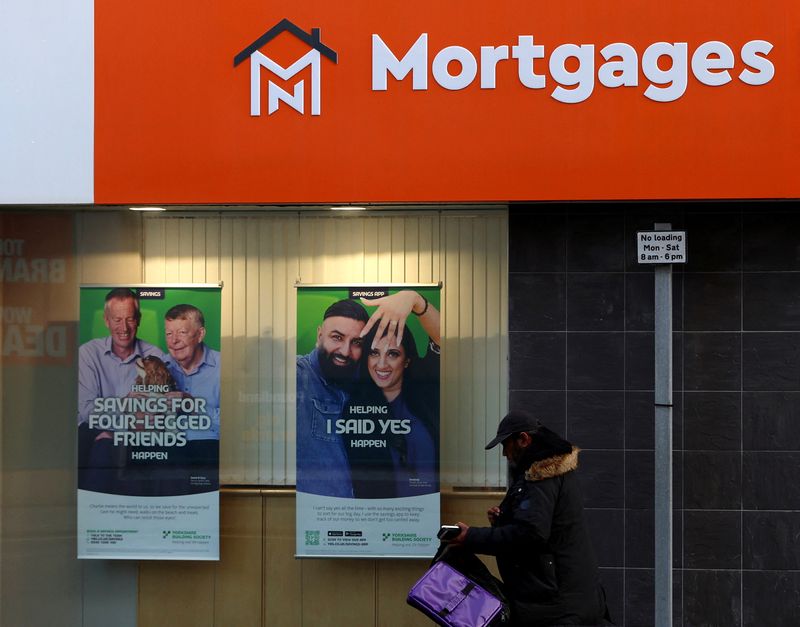
© Reuters. FILE PHOTO-A shopper walk past a mortgage advertisement displayed in a window in Sunderland, Britain, September 28, 2022. REUTERS/Lee Smith
BARC
+2.01%
Add to/Remove from Watchlist
Add to Watchlist
Add Position
Position added successfully to:
Please name your holdings portfolio
Type:
BUY
SELL
Date:
Amount:
Price
Point Value:
Leverage:
1:1
1:10
1:25
1:50
1:100
1:200
1:400
1:500
1:1000
Commission:
Create New Watchlist
Create
Create a new holdings portfolio
Add
Create
+ Add another position
Close
VM
0.00%
Add to/Remove from Watchlist
Add to Watchlist
Add Position
Position added successfully to:
Please name your holdings portfolio
Type:
BUY
SELL
Date:
Amount:
Price
Point Value:
Leverage:
1:1
1:10
1:25
1:50
1:100
1:200
1:400
1:500
1:1000
Commission:
Create New Watchlist
Create
Create a new holdings portfolio
Add
Create
+ Add another position
Close
HUD
0.00%
Add to/Remove from Watchlist
Add to Watchlist
Add Position
Position added successfully to:
Please name your holdings portfolio
Type:
BUY
SELL
Date:
Amount:
Price
Point Value:
Leverage:
1:1
1:10
1:25
1:50
1:100
1:200
1:400
1:500
1:1000
Commission:
Create New Watchlist
Create
Create a new holdings portfolio
Add
Create
+ Add another position
Close
By Andy Bruce
LONDON (Reuters) – Major British lenders on Thursday announced another increase in mortgage rates offered via brokers, pushing many products above the 6% mark in painful news for many homeowners and potential buyers.
Lenders have re-priced home loan offerings repeatedly in recent weeks in a scramble to keep up with soaring funding costs, spurred by expectations of more interest rate hikes from the Bank of England as it battles stubbornly high inflation.
Barclays (LON:BARC), NatWest and Virgin Money (LON:VM) informed brokers that rates on many mortgage offerings will rise again on Friday, according to emails seen by Reuters.
Nationwide Building Society, another major lender, raised rates on products offered via brokers earlier on Thursday.
“As mortgage rates continue to rise, the property market is being pushed further towards a cliff edge and there’s no real help in sight,” mortgage broker Lewis Shaw of Shaw Financial Services said.
Oxford Economics, a consultancy, said it now expected a peak-to-trough drop in house prices of around 13%.
“The high share of fixed-rate deals and a limited rise in unemployment mean we still expect the downturn to be more of a slow puncture, with prices falling steadily over a couple of years, rather than a sudden, sharp drop,” said Andrew Goodwin, Oxford Economics’ chief UK economist.
Two-year swap rates – a key determinant of mortgage borrowing costs – have soared by 0.83 percentage points over the course of June.
If sustained until the end of Friday, it would mark the biggest one-month increase since May 1989 – apart from during the market turmoil triggered by the economic agenda of former Prime Minister Liz Truss late last year.
Mortgage rates of 6% represent the same financial burden from repayments as they did in the late 1980s, even though mortgage rates were around 13% then, according to housing market analyst Neal Hudson (NYSE:HUD), founder of consultancy BuiltPlace.
Mortgagors today borrow much greater sums against their income – a ratio that has risen from 2.0 in the late eighties to around 3.5 today – while changes to taxes and mortgage products have also altered the equation.
Bank of England data published on Thursday showed lenders approved more mortgages than expected in May but for the first time since records started in 1986, the value of mortgage lending contracted for a second month running.
Source: Investing.com





























